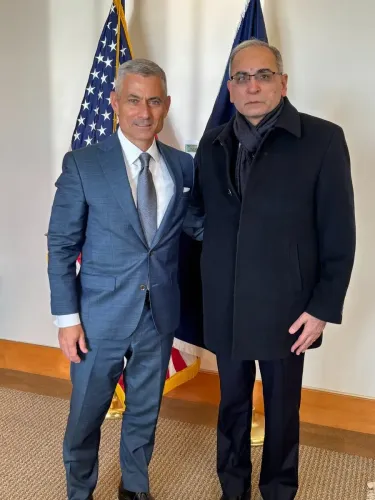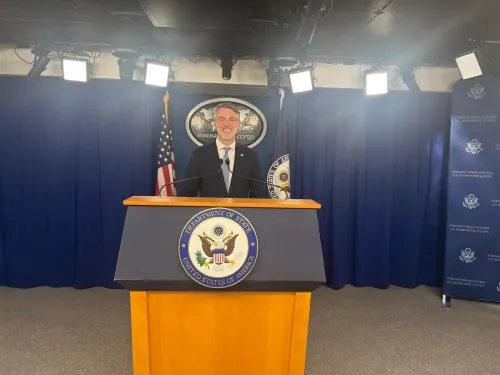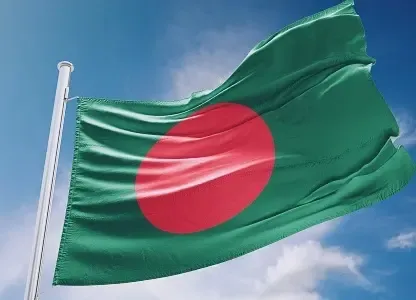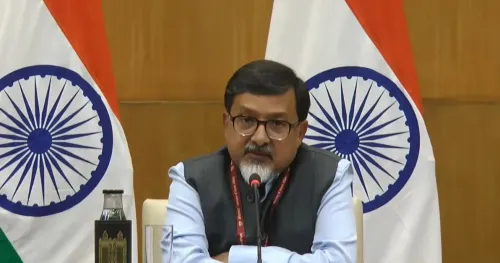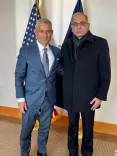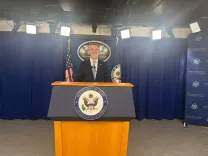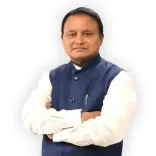Bangladesh: Concerns Rise Over Trump's Potential Tough Stance Toward Yunus Administration in Dhaka
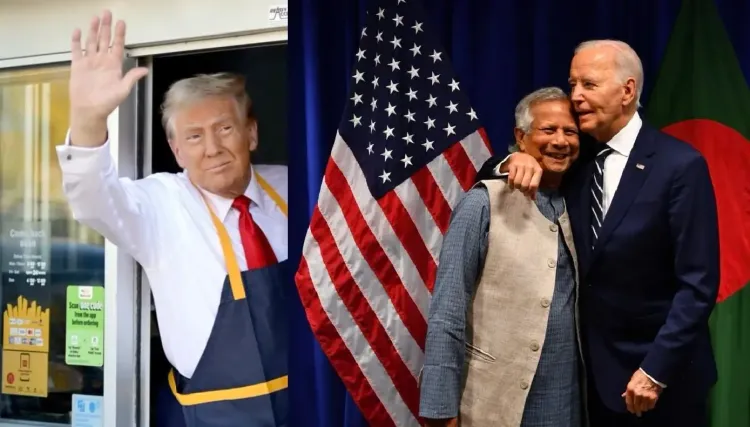
Synopsis
Key Takeaways
- Trump's return may alter US-Bangladesh relations.
- Yunus government faces criticism for minority treatment.
- US provides significant development aid to Bangladesh.
- Investment prospects appear diminished under Trump.
- Washington's proactive diplomacy signals concerns.
Dhaka, Jan 21 (NationPress) Analysts in Dhaka express concerns that US policies towards Bangladesh might see considerable shifts in the near future, particularly with Donald Trump back in the White House for a remarkable second term as the 47th President, starting Monday.
The interim government in Bangladesh, under the leadership of Chief Advisor Muhammad Yunus, has faced international backlash for its treatment of minorities, particularly Hindus, since it assumed power in August 2024.
During his presidential campaign, Trump denounced the escalating violence against Hindus and other minority groups in Bangladesh.
In a pointed message on X, Trump criticized Bangladesh, stating it is in a “total state of chaos”, while also sending Diwali wishes to Hindu Americans.
He expressed, “I strongly condemn the barbaric violence against Hindus, Christians, and other minorities who are getting attacked and looted by mobs in Bangladesh, which remains in a total state of chaos,” on October 31.
He added, “It would have never happened on my watch... We will also protect Hindu Americans against the anti-religion agenda of the radical left. We will fight for your freedom. Under my administration, we will also strengthen our great partnership with India and my good friend, Prime Minister Modi.”
Last month, the Yunus administration attempted to foster a spirit of cooperation with the incoming Washington administration, asserting that the longstanding relationship would remain unchanged after Trump’s second term begins. However, local experts suggest that Dhaka might face a challenging path ahead.
Rakib Al Hasan, founder and Executive Director of the Centre for Partnership Initiative, advised in the ‘Daily Star’ that “Dhaka should establish specialised units within the Ministry of Foreign Affairs to monitor US policy developments and coordinate lobbying efforts.”
He indicated that Bangladesh’s participation in China’s Belt and Road Initiative (BRI) has already attracted scrutiny from Washington, and a more assertive Trump presidency could force Bangladesh into tough decisions.
The United States contributes around $200 million annually in development assistance to Dhaka and is also the primary export market for Bangladesh, particularly in the Ready-Made Garment (RMG) sector, which constitutes over 80 percent of Bangladesh's exports to the US.
A report titled ‘How Bangladesh may be affected by Trump’s policies’ published in the Dhaka Tribune, noted that the prospects for new US investments in Bangladesh and increased bilateral trade seem “limited.”
According to a former Bangladeshi diplomat, “Existing investors are scaling back, while potential investors are adopting a wait-and-see approach. Even after a new government comes into power, prospective investors may observe the situation for some time before making decisions.”
Interestingly, Ambassador Tracey Ann Jacobson, currently serving as Chargé d'affaires (ad interim) at the US Embassy in Dhaka, has been engaging in a series of important meetings since she took office on January 11.
Jacobson met with Yunus on Monday, with the Embassy stating that their discussion centered around the US's support “as Bangladesh works toward a stable and democratic future for its people.”
In her initial engagement with the interim government, Jacobson had a “productive discussion” with Bangladesh's Ministry of Law, Justice, and Parliamentary Affairs Advisor, Asif Nazrul, concerning “labour rights, judicial reform, and counter-terrorism,” on January 16.
This meeting occurred amidst Washington's dissatisfaction with reports revealing that the interim government in Bangladesh is moving to exonerate Syed Zia-ul Haque, a former Major of the Bangladesh Army wanted by the US due to his ties with Al Qaeda.
On January 19, just a day before her meeting with Yunus, Jacobson also met with Bangladesh's Foreign Affairs Advisor Touhid Hossain and Foreign Secretary Jashim Uddin, indicating Washington's proactive diplomatic efforts leading up to Trump’s inauguration.

